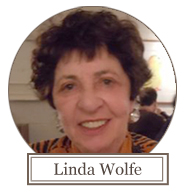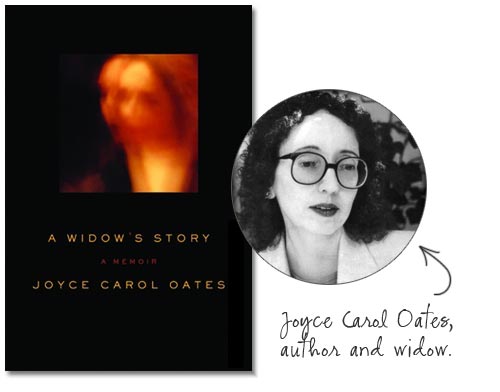In A Widow’s Story, Joyce Carol Oates’s describes the painful year following her husband’s sudden death. FOF book reviewer Linda Wolfe, a widow herself, praises Oates’s warmth, but questions her sincerity.
 A Widow’s Story, Joyce Carol Oates’s memoir about her first year of widowhood after the death of her husband Ray Smith, a scholar and editor to whom she’d been married for almost fifty years, is bound to call to mind Joan Didion’s The Year of Magical Thinking. Since hardly a book lover over fifty hasn’t read the Didion work–and you must be a book lover if you’re reading my FOF reviews–I’ll get the comparisons out of the way right upfront. Where Didion was concise, precise and poetic, Oates is verbose, expansive, and prosaic, inclined to give us everything and the kitchen sink, from reporting her terrors about entering her empty house and running out of death certificates, to reprinting emails the complete emails she exchanged with friends. Nevertheless, this is a warmer work than Didion’s, more intimate, more straightforward, and truer to the actual day-by-day, minute-by-minute thoughts and experiences of the newly-widowed woman. (I’ve been there myself, so I know the territory.)
A Widow’s Story, Joyce Carol Oates’s memoir about her first year of widowhood after the death of her husband Ray Smith, a scholar and editor to whom she’d been married for almost fifty years, is bound to call to mind Joan Didion’s The Year of Magical Thinking. Since hardly a book lover over fifty hasn’t read the Didion work–and you must be a book lover if you’re reading my FOF reviews–I’ll get the comparisons out of the way right upfront. Where Didion was concise, precise and poetic, Oates is verbose, expansive, and prosaic, inclined to give us everything and the kitchen sink, from reporting her terrors about entering her empty house and running out of death certificates, to reprinting emails the complete emails she exchanged with friends. Nevertheless, this is a warmer work than Didion’s, more intimate, more straightforward, and truer to the actual day-by-day, minute-by-minute thoughts and experiences of the newly-widowed woman. (I’ve been there myself, so I know the territory.)
Every widow will recognize herself in Oates’s thoughts and experience. Take her anguish about being left alone: “When you are not alone, you are shielded,” she writes, “from the stark implacable unspeakable indescribable terror of aloneness. You are shielded from the knowledge of your own insignificance….When you are loved you are blind to your own worth; or, you are indifferent to such thoughts.”
Or take her bouts of what Didion termed “magical thinking”: remembering the times she traveled without Ray, Oates tries telling herself “with childish logic that if Ray were alive but not with me, that absence would be identical with this absence.”
Then there’s the bursting into tears at odd moments. The inability to sleep at night. The depression that makes even simple chores seem impossible. The rage at having to secure documents just in order to access one’s money. The horrifying sensation that not just a beloved partner has been lost, but that one’s own self has been lost as well. Above all, the recurrent thoughts of suicide.
Many married women think to themselves–or even say aloud, as a friend of mine said to me just the other day–that if their partners were to die, they’d kill themselves. Oates always imagined she’d choose that course. “Frequently in the past,” she writes, “I had consoled myself that, should something happen to Ray, I would not want to outlive him. I could not bear to outlive him! I would take a fatal dose of sleeping pills.”
Soon after Ray’s death, she does get out all the leftover sleeping pills and tranquilizers she’s been prescribed over the years, but she doesn’t take any of them. Their presence is reassuring, but she continues to have suicidal thoughts. To the widow, she says, “Suicide promises A good night’s sleep–with no interruptions. And no next day.”
Wrestling with her demons, Oates sets herself the modest goal of getting through each day. And at book’s end, she declares,“Of the widow’s countless death-duties, there is really just one that matters: on the first anniversary of her husband’s death the widow should think, I kept myself alive.”
Oates doesn’t tell us that besides keeping herself alive, within a year of her husband’s death she found a new partner, became engaged, and in a few months married him. I hate to sound cynical, but I suspect Oates is saving that story for her next book. Too bad. Leaving out this information, which is common knowledge in the literary world, makes this otherwise memorable book seem unfortunately disingenuous.
Linda Wolfe is a renowned journalist, essayist and novelist who happened to move to a new apartment right next door to the Faboverfifty offices. Now she writes brilliant book reviews just for us. Read more about Linda.


